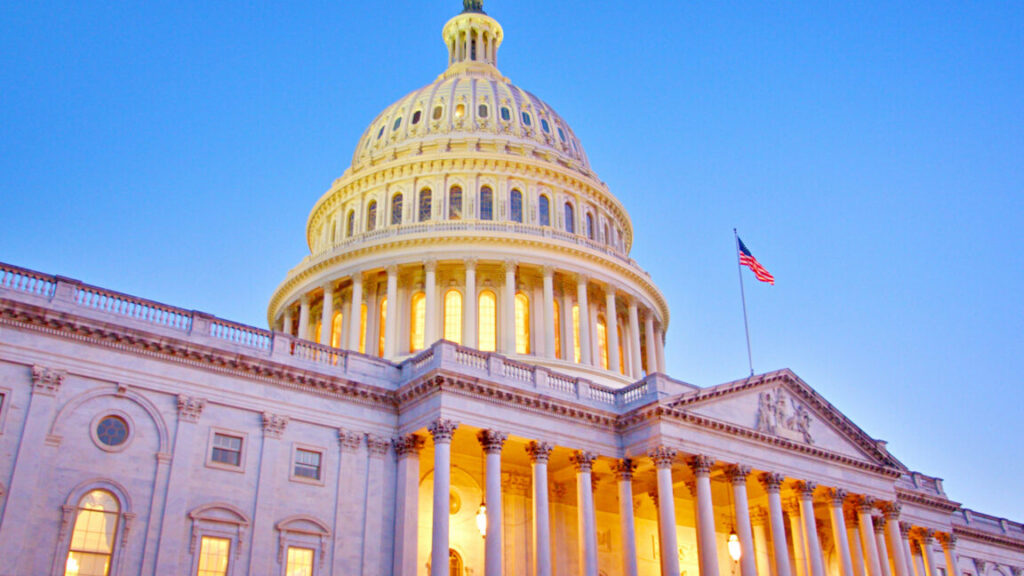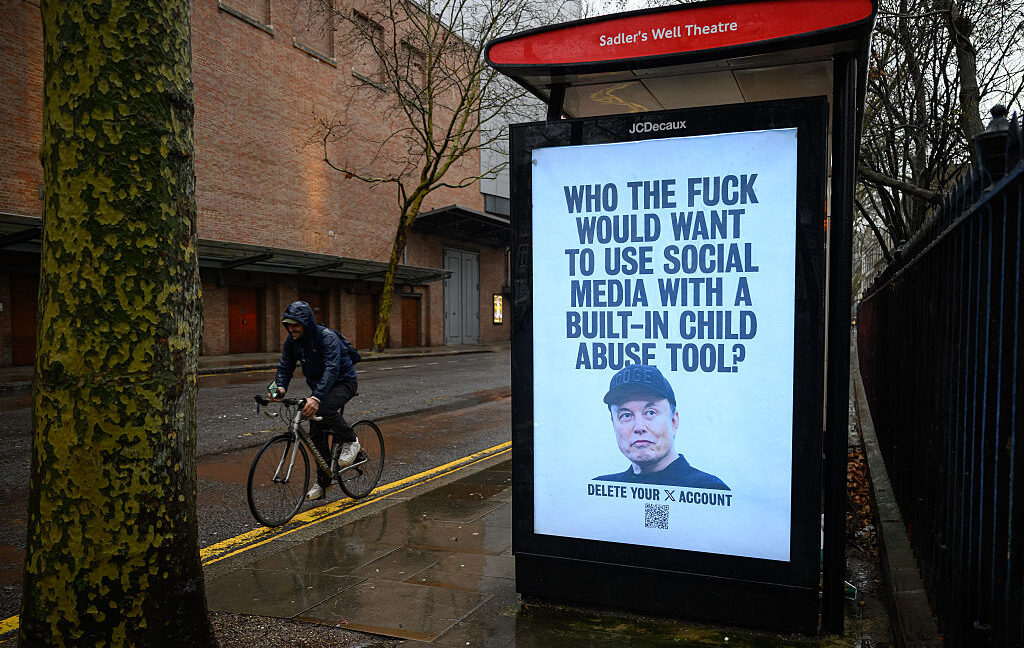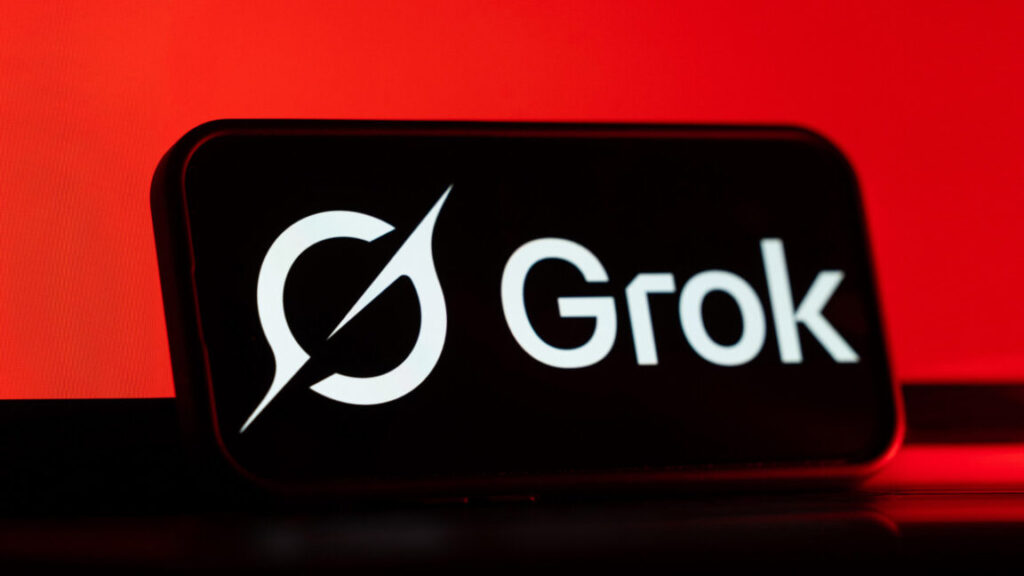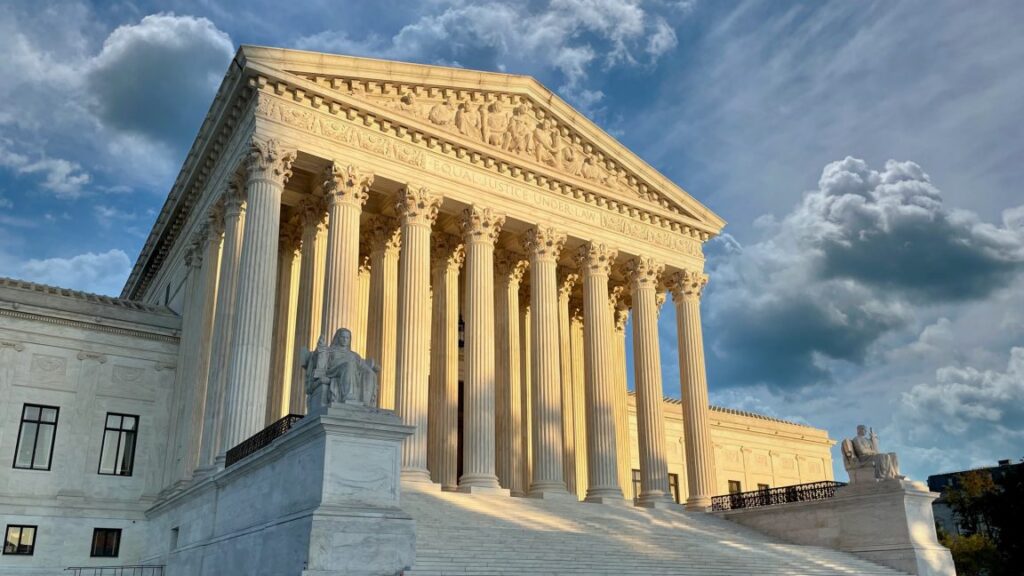FBI fights leaks by seizing Washington Post reporter’s phone, laptops, and watch
“Extraordinary, aggressive action”
FBI searches home and devices of reporter who has over 1,100 government contacts.
The Washington Post building on August 6, 2013 in Washington, DC, Credit: Getty Images | Saul Loeb
The FBI searched a Washington Post reporter’s home and seized her work and personal devices as part of an investigation into what Attorney General Pam Bondi called “illegally leaked information from a Pentagon contractor.”
Executing a search warrant at the Virginia home of reporter Hannah Natanson on Wednesday morning, FBI “agents searched her home and her devices, seizing her phone, two laptops and a Garmin watch,” The Washington Post reported. “One of the laptops was her personal computer, the other a Washington Post-issued laptop. Investigators told Natanson that she is not the focus of the probe.”
Natanson regularly uses encrypted Signal chats to communicate with people who work or used to work in government, and has said her list of contacts exceeds 1,100 current and former government employees. The Post itself “received a subpoena Wednesday morning seeking information related to the same government contractor,” the report said.
Post Executive Editor Matt Murray sent an email to staff saying that early in the morning, “FBI agents showed up unannounced at the doorstep of our colleague Hannah Natanson, searched her home, and proceeded to seize her electronic devices.” Murray’s email called the search an “extraordinary, aggressive action” that is “deeply concerning and raises profound questions and concern around the constitutional protections for our work.”
The New York Times wrote that it “is exceedingly rare, even in investigations of classified disclosures, for federal agents to conduct searches at a reporter’s home. Typically, such investigations are done by examining a reporter’s phone records or email data.”
The search warrant said the probe’s target is “Aurelio Perez-Lugones, a system administrator in Maryland who has a top-secret security clearance and has been accused of accessing and taking home classified intelligence reports that were found in his lunchbox and his basement,” the Post article said.
“Alarming escalation” in Trump “war on press freedom”
Bondi confirmed the search in an X post. “This past week, at the request of the Department of War, the Department of Justice and FBI executed a search warrant at the home of a Washington Post journalist who was obtaining and reporting classified and illegally leaked information from a Pentagon contractor. The leaker is currently behind bars,” Bondi wrote.
Bondi said the Trump administration “will not tolerate illegal leaks of classified information” that “pose a grave risk to our Nation’s national security and the brave men and women who are serving our country.”
Searches targeting journalists require “intense scrutiny” because they “can deter and impede reporting that is vital to our democracy,” said Jameel Jaffer, executive director of the Knight First Amendment Institute at Columbia University. “Attorney General Bondi has weakened guidelines that were intended to protect the freedom of the press, but there are still important legal limits, including constitutional ones, on the government’s authority to use subpoenas, court orders, and search warrants to obtain information from journalists. The Justice Department should explain publicly why it believes this search was necessary and legally permissible, and Congress and the courts should scrutinize that explanation carefully.”
Seth Stern, chief of advocacy at Freedom of the Press Foundation, called the search “an alarming escalation in the Trump administration’s multipronged war on press freedom. The Department of Justice (and the judge who approved this outrageous warrant) is either ignoring or distorting the Privacy Protection Act, which bars law enforcement from raiding newsrooms and reporters to search for evidence of alleged crimes by others, with very few inapplicable exceptions.”
In April 2025, the Trump administration rescinded a Biden-era policy that limited searches and subpoenas of reporters in leak investigations. But even the weaker Trump administration guidelines “make clear that it’s a last resort for rare emergencies only,” according to Stern. “The administration may now be in possession of volumes of journalist communications having nothing to do with any pending investigation and, if investigators are able to access them, we have zero faith that they will respect journalist-source confidentiality.”
The Washington Post didn’t say whether Perez-Lugones provided information to Natanson and pointed out that the criminal complaint against him “does not accuse him of leaking classified information he is alleged to have taken.”
Post reporter has over 1,100 government contacts
Natanson does have many sources in the federal workforce. She wrote a first-person account last month of her experience as the news organization’s “federal government whisperer.” Around the time Trump’s second term began, she posted a message on a Reddit community for federal employees saying she wanted to “speak with anyone willing to chat.”
Natanson got dozens of messages by the next day and would eventually compile “1,169 contacts on Signal, all current or former federal employees who decided to trust me with their stories,” she wrote. Natanson explained that she was previously an education reporter but the paper “created a beat for me covering Trump’s transformation of government, and fielding Signal tips became nearly my whole working life.”
In another case this month, the House Oversight Committee voted to subpoena journalist Seth Harp for allegedly “doxxing” a Delta Force commander involved in the operation in Venezuela that captured President Nicolás Maduro. Harp called the doxxing allegation “ludicrous” because he had posted publicly available information, specifically an online bio of a man “whose identity is not classified.”
“There is zero question that Harp’s actions were fully and squarely within the protections of the First Amendment, as well as outside the scope of any federal criminal statutes,” over 20 press freedom and First Amendment organizations said in a letter to lawmakers yesterday.
The Trump administration’s aggressive stance toward the media has also included numerous threats from Federal Communications Commission Chairman Brendan Carr to investigate and punish broadcasters for “news distortion.”
As for Perez-Lugones, he was charged last week with unlawful retention of national defense information in US District Court for the District of Maryland. Perez-Lugones was a member of the US Navy from 1982 to 2002, said an affidavit from FBI Special Agent Keith Starr. He has been a government contractor since 2002 and held top-secret security clearances during his Naval career and again in his more recent work as a contractor.
“Currently, Perez-Lugones works as a systems engineer and information technology specialist for a Government contracting company whose primary customer is a Government agency,” the affidavit said. He had “heightened access to classified systems, networks, databases, and repositories” so that he could “maintain, support, and optimize various computer systems, networks, and software.”
Documents found in man’s car and house, FBI says
The affidavit said that “Perez-Lugones navigated to and searched databases or repositories containing classified information without authorization.” The FBI alleges that on October 28, 2025, he took screenshots of a classified intelligence report on a foreign country, pasted the screenshots into a Microsoft Word document, and printed the Word document.
His employer is able to retrieve records of printing activity on classified systems, and “a review of Perez-Lugones’ printing activity on that dates [sic] showed that he had printed innocuous sounding documents (i.e., Microsoft Word‐Document 1) that really contained classified and sensitive reports,” the affidavit said.
Perez-Lugones allegedly went on to access and view a “classified intelligence report related to Government operational activity” on January 5, 2026. On January 7, he was observed at his workplace taking notes on a yellow notepad while looking back and forth between the notepad and a computer that was logged into the classified system, the affidavit said.
Investigators executed search warrants on his home in Laurel, Maryland, and his vehicle on January 8. They found a document marked as SECRET in a lunchbox in his car and another secret document in his basement, the affidavit said.
Prior video surveillance showed Perez-Lugones at his cubicle looking at the document that was later found in the lunchbox, the affidavit said. Investigators determined that he “remov[ed] the classification header/footer markings from this document prior to leaving his workplace.”
The US law that Perez-Lugones was charged with violating provides for fines or prison sentences of up to 10 years. A magistrate judge ruled that Perez-Lugones could be released, but that decision is being reviewed by the court at the request of the US government.
FBI fights leaks by seizing Washington Post reporter’s phone, laptops, and watch Read More »














